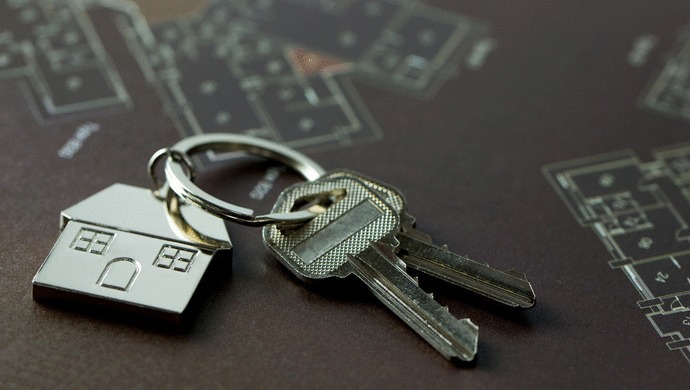By making it possible to digitally represent properties on the platform, trading real estate properties will happen seamlessly without geographical restrictions

The global real estate market is still expected to make tremendous growth in the course of 2019 despite the volatility and uncertainty surrounding the economic outlook at the start of this year, according to a report by CBRE.
The global market has been estimated to reach a revenue of over US$4 trillion by the year 2025.
Economic development in developing countries, the rising increase in demand for real estate housing, and several other factors have steadily been contributing to the increase in the market revenue.
One major driver of the market is the rapid increase in rural-urban migration which has led to urbanisation. This increase has spiked the demand for urban home spaces thus increasing real estate housing investment.
Also, investments in the global commercial retail market run into billions of dollars with real estate investors still actively exploring different countries and locations to invest.
Barriers to investing
However, despite the growth and the estimated forecast revenue, the real estate market is still plagued with a number of limitations that hinder more growth.
There are still barriers to investments in the sector especially for foreign investors, one of which is the complex process involved in buying real estate properties in foreign territories.
Also Read: Logistics tech startup Waresix shares their achievements and target
Foreign investors have to go through rigorous processes depending on what country or region they choose to invest in. Most have these investors go through agencies to purchases these properties which comes at huge costs as the agencies will also have prices fixed for their services.
Also, the huge capital requirements involved in purchasing these properties abroad which then have to be held down for a number of months depending on country laws before realising returns from the investment, discourage a substantial number of small investors who have access to no such funds.
The liquidity in the market is posing a major barrier to investors and as such should be effectively addressed for adequate growth to occur in the market.
How blockchain changes the ecosystem
Blockchain for years now, has been disrupting several sectors and industries by totally revamping traditional business models and processes. Distributed ledger technology is designed to facilitate transparency, authenticity, security, and decentralisation.
Having been leveraged in sectors like the financial, luxury, gaming and health sectors, it’s time the real estate sector took advantage of the technology and explore ways it can facilitate the market.
A number of blockchain companies have already begun such explorations. LABS Property, for instance, creates a digital representation of real estate properties on the blockchain which will allow easy access and trading. Foreigners will no longer need to go through the complex processes of purchasing assets as foreigners abroad because LABS Property will act as title deed custodian locally and investors can then purchase directly from their platform. This eliminates the tedious paperwork process and middlemen challenges.
With the LABS Property framework, investors will be able to purchase real estate properties in fractions, i.e., fractional ownership. This will be similar to owning a square foot of a property. Investors will not need to acquire a huge amount of capital for single ownership rather, with the current funds at hand, they can purchase via the LABS. Its property platform is a somewhat property swap market and, properties can be bought and traded as the investor wills.
For instance, an investor is willing to invest in real estate property in Vancouver but has no access to huge capital funding and does not desire to go through the documentation, requirements, and agencies to secure the property. All they need to do is simply purchase via LABS Property.
Since the property is digitally represented on the blockchain, the investor can choose to purchase a fraction of the property they can afford and it automatically becomes theirs. The same fraction purchased can further be traded with other interested buyers on the blockchain and earnings will be received almost instantly.
Fractional ownership of properties is a major boost to the real estate market, as small investors will now have access to real estate investments without restrictions of huge capital. Fractional ownership also means investors don’t have to wait for months or years to earn returns, trading and transfer of rights can be done on the blockchain platform.
Blockchain technology proves the capacity to facilitate effective growth in the real estate sector. By making it possible to digitally represent properties on the platform, trading real estate properties will happen seamlessly without geographical restrictions.
The room created for small investors to participate in the market will certainly impact the overall revenue in the market.
The future of real estate investments disruption
Blockchain is creating a new future for business operations whilst giving equity and fairness to all players. With the new developments the technology brings to the market, smaller-scale investors will have unrestricted access to real estate investments.
The exciting factor here is investors can purchase real estate properties in foreign countries as if they were local — no complex documentation processes, no middlemen or agency hassles, all direct investments, thanks to blockchain technology.
Also Read: What Southeast Asia’s gaming companies can do to stay ahead of foreign competitors
In addition, the thrilling idea that properties will be bought in fractions without having to purchase the whole is one that will boost growth and revenue in the market. Real estate ownership just got redefined.
The disruption of the market by blockchain is one that stands to boost investments and open more doors of opportunities to potential investors. Blockchain is redefining and democratising the real estate sector for the better.
—
e27 publishes relevant guest contributions from the community. Share your honest opinions and expert knowledge by submitting your content here.
The post Blockchain is revolutionising the real-estate market through fractional ownership appeared first on e27.